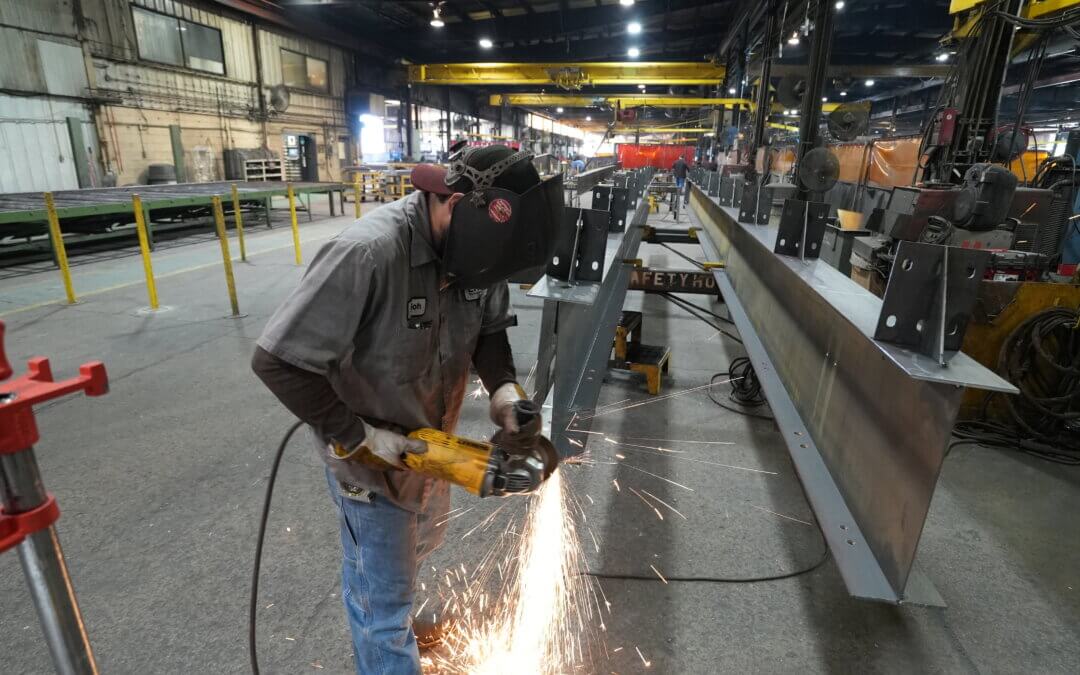Technology is revolutionizing the manufacturing industry, ushering in a new era of efficiency, precision, and innovation. Known as Industry 4.0, this transformation integrates advanced technologies into manufacturing processes, creating smarter factories and reshaping the way products are designed, produced, and delivered. Let’s explore the cutting-edge innovations driving this evolution and their impact on manufacturing operations.
Smart Manufacturing and IoT Integration
Smart manufacturing, powered by the Internet of Things (IoT), has enabled seamless communication between devices, machines, and systems on the factory floor. IoT-driven benefits include:
Predictive Maintenance: Sensors monitor equipment performance in real-time, identifying potential issues before costly downtime occurs.
Optimized Workflows: Connected devices streamline operations, reducing bottlenecks and enhancing productivity.
Actionable Insights: Real-time data provides manufacturers with information to improve efficiency and reduce waste.
IoT integration transforms traditional manufacturing facilities into connected ecosystems, fostering smarter and faster production.
Automation and Robotics
Automation and robotics have become essential tools for staying competitive in manufacturing. Their key advantages include:
Enhanced Accuracy: Robots perform repetitive tasks with high precision, reducing human error.
Labor Cost Savings: Automation minimizes dependency on manual labor for routine tasks.
Flexible Collaboration: Collaborative robots (cobots) work alongside humans, handling diverse responsibilities and boosting efficiency.
These advancements not only increase production efficiency but also allow human workers to focus on complex, value-driven tasks.
Artificial Intelligence and Machine Learning
AI and machine learning are revolutionizing manufacturing processes by enabling smarter operations. Their applications include:
Quality Control: AI-powered systems identify defects and inconsistencies with remarkable precision.
Demand Forecasting: Machine learning helps predict market trends, ensuring better inventory management.
Process Optimization: AI identifies inefficiencies and suggests improvements to enhance production flow.
By leveraging AI and machine learning, manufacturers can adapt more effectively to dynamic market demands.
Additive Manufacturing (3D Printing)
3D printing has progressed from prototyping to becoming a critical manufacturing method for customized, complex parts. Benefits include:
On-Demand Production: Manufacturing parts as needed reduces inventory costs.
Design Versatility: Enables the creation of intricate designs that traditional methods cannot achieve.
Sustainability: Minimizes material waste, making it an environmentally friendly solution.
Industries like aerospace, automotive, and healthcare are reaping the benefits of additive manufacturing’s versatility and precision.
Digital Twins
Digital twin technology bridges the physical and digital worlds, creating virtual replicas of products, systems, or processes. Manufacturers use digital twins to:
Simulate performance and troubleshoot potential issues.
Continuously monitor operations and improve efficiency.
Anticipate maintenance needs to reduce downtime.
This innovation provides manufacturers with unprecedented control over their operations.
Advanced-Data Analytics
Data analytics is a cornerstone of Industry 4.0, giving manufacturers insights to stay ahead in a competitive market. Benefits include:
Informed Decision-Making: Big data analytics uncovers patterns to improve production strategies.
Personalized Solutions: Analyzing customer preferences enables customized product offerings.
Optimized Supply Chains: Predictive analytics ensures smooth logistics and inventory management.
Harnessing data transforms manufacturing operations into data-driven ecosystems.
Sustainability in Manufacturing
Technological advancements are driving sustainable practices in manufacturing, including:
Energy Efficiency: Smart systems monitor and reduce energy consumption.
Eco-Friendly Materials: Innovations in materials science promote the use of recyclable and sustainable resources.
Waste Reduction: Additive manufacturing and IoT optimize resource utilization, minimizing waste.
Sustainable manufacturing practices benefit both the environment and businesses by attracting eco-conscious consumers and reducing costs.
Transform Your Manufacturing Operations
Technology is not just reshaping manufacturing processes—it’s setting a new standard for efficiency, creativity, and sustainability. By adopting these innovations, manufacturers can achieve greater productivity, adaptability, and environmental responsibility.
Explore how Chief Industries can help you leverage the latest manufacturing technologies to elevate your operations. Contact us today to learn more.

